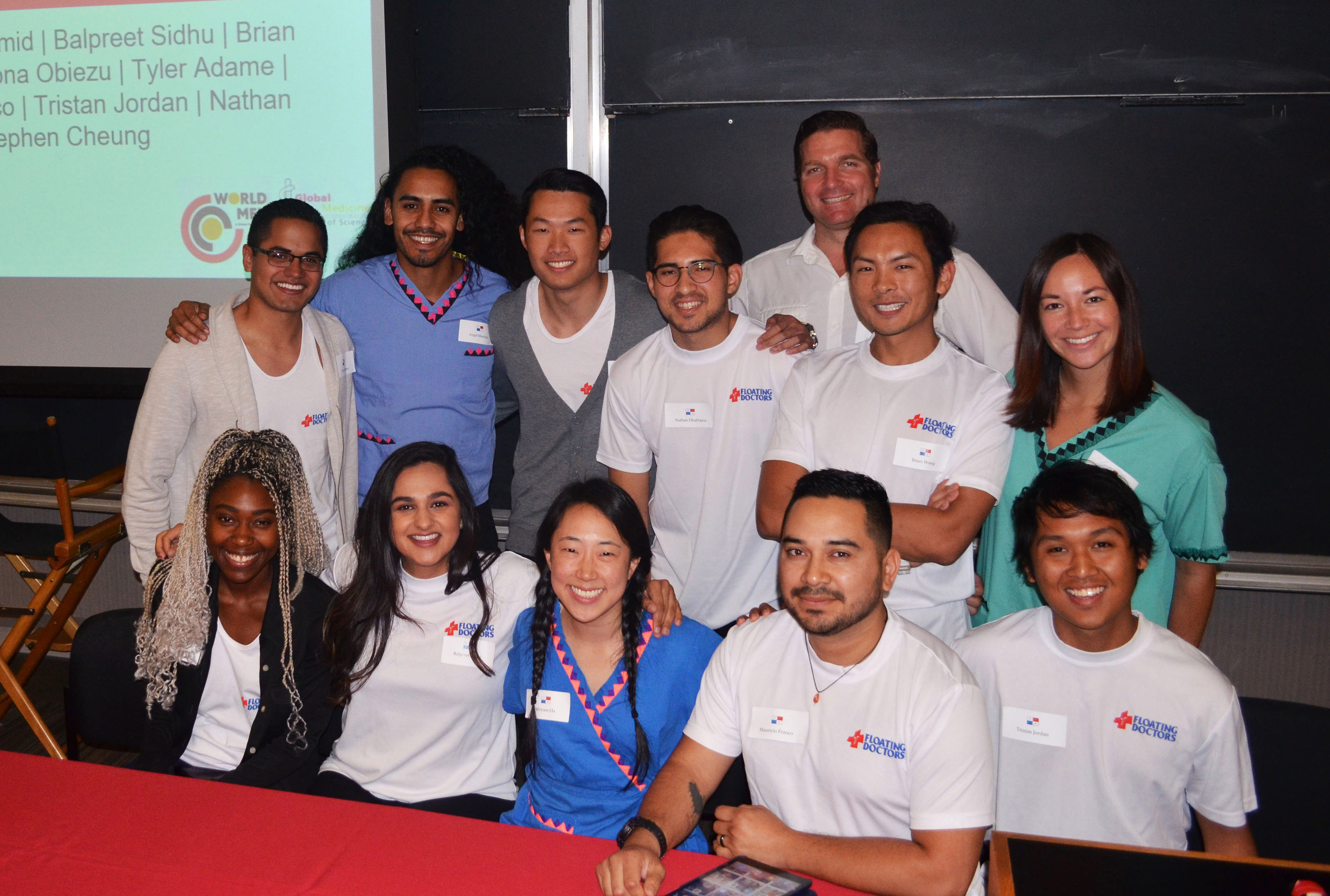Though passports were not required, students, faculty, and guests of the Master of Science in Global Medicine program gained a taste of world travel at this spring’s Global Citizenship Roundtable.
Held April 21, the biannual program featured the insights and perspectives of students who traveled to New York City, Panama, Uganda, and Malaysia for Global Medicine (GM) coursework. The program also included the research of recipients of the prestigious Dhablania and Kim Family Global Medicine Fellowship. From attending health policy lectures with United Nations officials to observing the provision of care in remote villages on multiple continents, the diversity of student experiences made for a day rich with discovery.
“It was a great learning experience to not lose sight of whatever you might be passionate about, and just let that drive you,” said Rojine Ariani, who shared how impressed she was by how the United Nations leaders she met with continue to serve, often unsung, while battling some of the world’s most pressing health issues.
Now in its sixth year, the Roundtable remains one of the most highly anticipated events of the Global Medicine program.
“It’s a time of sharing experiences and learning from each other, and what it means to be a global citizen,” said Elahe Nezami, PhD, associate professor of clinical preventive medicine and medical education (educational scholar); associate dean for undergraduate, masters and professional programs; director, health promotion and global health programs; and director, global medicine program at the Keck School of Medicine of USC.
Martin Shapiro, a Dhablania and Kim Family Global Medicine Fellow and third-year medical student at the Keck School, studied the effectiveness of using mobile apps to provide treatment to tuberculosis patients in Cambodia.
“This opportunity to work for an NGO (non-governmental organization), to work abroad, taking technology and leveraging existing resources and existing systems can really change the outcomes and change the outreach that we are able to have,” Shapiro said.
— Ryan Seuffert


